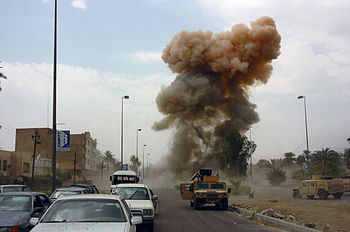 Zero Six Bravo: 60 Special Forces. 100,000 Enemy. The Explosive True Story by Damien Lewis
Zero Six Bravo: 60 Special Forces. 100,000 Enemy. The Explosive True Story by Damien Lewis
My rating: 4 of 5 stars
I make a point of reading first hand accounts of special forces operations. I started with world war two tales of the SAS and have worked up to the present time. Since the Bravo Two Zero fiasco I don’t expect much from tales of recent events.
This particular book tells the tale of a Special Boat Service mission in Iraq in 2003. It suffers a bit from excessive hypebole, presumably to garner sales. However it is actually very readable, and although much of the outcome is telepgrahed in advance the way it’s done is through a good hook to keep you reading to find out the detail of how/what happens. Well before all the debates in Parliament in 2003 M Squadron SBS were training up for their mission, changing their role from maritime operations to being vehicle borne. They then went into Iraq just before the air war started in 2003 with an attempt to contact a major Iraqui army formation to persuade it to surrender.
You know when you start to read it that the mission isn’t going to go well. In fact without even knowing anything about it I picked up that it must have gone horribly wrong. However I also knew that it couldn’t have gone that far wrong, because otherwise I probably would have heard about it since I have an interest in current affairs and military operations.
The story follows the perspective of one SBS Sergeant who was the lead navigator for most of the mission. Mainly it focusses on what he sees, and the actions of his three man vehicle crew. On the whole it is an interesting narrative and it gripped me enough to read longer than I normally do.
There’s a clear thread running through it of the forebodings, that may well have been how the central character felt, but are laboured to the extent that it comes across as 20:20 hindsight. There are also some rather strained references to Bravo Two Zero and the similarities with that patrol (both seem to have been compromised because they refused to shoot a child goat herder). That doesn’t really wash with me because the goat incident in Bravo Two Zero wasn’t repeated in the other books about the patrol and The Real “Bravo Two Zero” gives another version of events (apparently two Iraqui veterans of the Iran-Iraq War spotted the patrol, not a child goat herder).
Despite this I still think it’s worth a read, especially if you get it for the knock down price of 99p as I did.




















